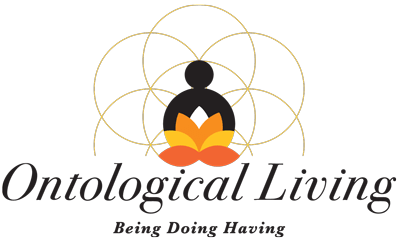Cultivating Trust in a “Post-Fact” World
The recent election-cycle has evoked some disturbing and destructive patterns of behavior.
Does the world—particularly the American and British corners of it—seem angrier, more hostile, more isolated, and more fractured than it has been in years?
Certainly some scary things are coming out of the woodwork, particularly on social media: a disdain for political-correctness and identity politics, a backlash against not only manipulative globalizing business structures, but against cosmopolitanism itself (not to downplay shameless racist sentiments that many of us had hoped were well out of norm).
Politics aside, we might benefit by examining the mood of distrust.
The loud call to hold our leaders accountable, and our vocal hope to revision and forge a sense of individual and collective integrity is not so much a “feeling” or a “psychological state” or a problem to be managed by marketers and politicians trying to curry favor from their constituencies as it is a way of articulating our individual and collective relationships.
In other words, our problems are not only top-down—a function of our political and social institutions—but also bottom-up, that is, a product of our individual relationships and the manner in which we communicate, speak, coordinate our actions and co-create our worlds.
Our “problem”—that is, our challenge and our opportunity—emerges from how we communicate with one another, and the sorts of commitments we’re willing to stake our integrity to.
We can generate promising opportunities by thinking deeply about moods, trust and commitments.
The very fact that trust is a dominant issue (particularly around the issue of “truth” and life in a “post-fact” world) points to how much we place our trust in trust. We are not so cynical to have given up on the conversation and issue of trust. We expect and demand relationships of trust.
In so-called low-trust societies, trust is not a conversation, because it has been so depleted that energies are spent more productively mitigating the effects of low-integrity relationships.
But our vocal outrage at potential conflicts of interest, at manipulative business structures, and “rigged” systems of gerrymandering speaks to the many successes we’ve achieved in a society where trust is as taken for granted as the air we breath.
So what’s to be gained by this trust in trust?
First, if we expect more from our political institutions, then we need to also expect more from ourselves.
How have we cultivated trust in our own lives?
If we move away from the view that trust is something to be found or earned, but rather, something to be created and nurtured through our individual commitments, our integrity, and our willingness to effectively communicate and build and bridge conversations, then we can create a richer space of possibilities.
If we accept betrayal and breakdown as inevitable steps in the process of cultivating and nurturing trust, then we can avoid the cynicism that simply walks away from the table.
Similarly, our moods can be viewed as emerging from our practices—not inevitable psychological states we are at the mercy of.
So if we feel broken by a mood of distrust, then we have to change the practices in our lives that foster that mood. We have to commit to the arduous but joyful task of building trustworthy relationships, and this is no small task—it requires commitment and practice.
In his work with Trappist monks, the entrepreneur, business executive and writer, August Turak has pointed out just a few of those practices that are key to generating a network of trust around you.
Some of the important takeaways we’ve found are these:
We must continually develop in the art of communication. Effective language-ing is key to building relationships, and particularly relationships of trust.
For example, we might resolve to avoid ambiguities where possible. Instead of “trying to get it done” or “maybe meeting up around this time,” we commit to clear actions, and we do so with the thought of staking our reputation to these commitments.
And instead of compartmentalizing our patterns of behavior, we might view ourselves more holistically by recognizing that how we handle the small things in our lives contributes to how we show up in the “big things.”
When we break little promises to others and to ourselves, when we avoid small commitments, and rush through the details of our lives, we bring all of that to the table in our relationships.
The upshot is that we can generate networks of trust through paying attention to our conversations—the promises and commitments we often ambiguously make—and we can develop self-trust by practicing a life of commitment and clarity.
By changing our practices, we can change our moods and create effective networks that cultivate and nurture community—not hypocritical and superficial communities, but thriving communities where clear communication and trust can flourish.
The current political climate has only reminded us that in addition to decisive political and ideological commitments, we need to attend to our immediate relationships and our everyday practices, and to the relationship we forge with ourselves.
–May this help illuminate what was always there to begin with: infinite abundance!
© 2016, Ideal Coaching Global, Kevin Perry & Bettie J. Spruill








